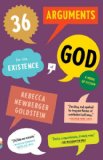Summary | Excerpt | Reading Guide | Reviews | Beyond the book | Read-Alikes | Genres & Themes | Author Bio

With astonishing grace and simplicity, Dara Horn interweaves a real art heist, history, biography, theology, and Yiddish literature. Richly satisfying, utterly unique, her novel opens the door to "the world to come"—not life after death, but the world we create through our actions right now.
A million-dollar painting by Marc Chagall is stolen from a museum. The unlikely
thief is Benjamin Ziskind, a thirty-year-old quiz-show writer. As Benjamin and
his twin sister try to evade the police, they find themselves recalling their
dead parents—the father who lost a leg in Vietnam, the mother who created
children's books—and their stories about trust, loss, and betrayal.
What is true, what is fake, what does it mean? Eighty years before the theft,
these questions haunted Chagall and the enigmatic Yiddish fabulist Der Nister
("The Hidden One"), teachers at a school for Jewish orphans. Both the painting
and the questions will travel through time to shape the Ziskinds' futures.
With astonishing grace and simplicity, Dara Horn interweaves a real art heist,
history, biography, theology, and Yiddish literature. Richly satisfying, utterly
unique, her novel opens the door to "the world to come"—not life after death,
but the world we create through our actions right now.
Some books are amusing enough to read at the time, but lacking true substance, quickly fade from my mind. It's been some weeks since I finished The World to Come and I can safely say that this is not going to be one of those books! Dara Horn (author of In the Image, 2002) has produced a real gem of a book with a wealth of plots and sub-plots, packed full with everything from Yiddish folklore to Soviet politics. However, it is not a book that all will appreciate - I'm thinking here of readers who like their books to end neatly with all plot elements tidied up and put away. This is not such a book - without spoiling the plot, all I can say is the ending is in keeping with the Chagall painting at the center of the story!..continued
Full Review
 (384 words)
(384 words)
(Reviewed by BookBrowse Review Team).
Dara Horn was
inspired to write The World
To Come following an actual
theft of a Marc Chagall painting
from a museum in New York that
took place during a singles'
cocktail hour.
More about this.
The painting that Benjamin
Ziskind steals from the museum,
Study for "Over Vitebsk",
is, I assume, fictitious.
However
Over Vitebsk itself does
exist, and can be seen in the
Museum of Modern Art (MOMA) in
New York. Vitebsk was the town
in which Chagall was born and
...

If you liked The World To Come, try these:

36 Arguments for the Existence of God
by Rebecca Goldstein
Published 2011
A hilarious, heartbreaking, and intellectually captivating novel about the rapture and torments of religious experience in all its variety.

by Geraldine Brooks
Published 2009
From the Pulitzer Prize–winning author of March, the journey of a rare illuminated manuscript through centuries of exile and war.